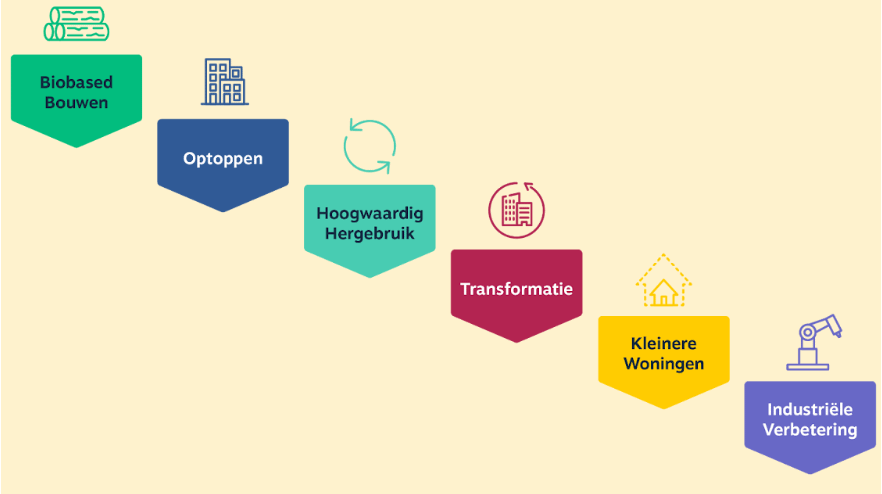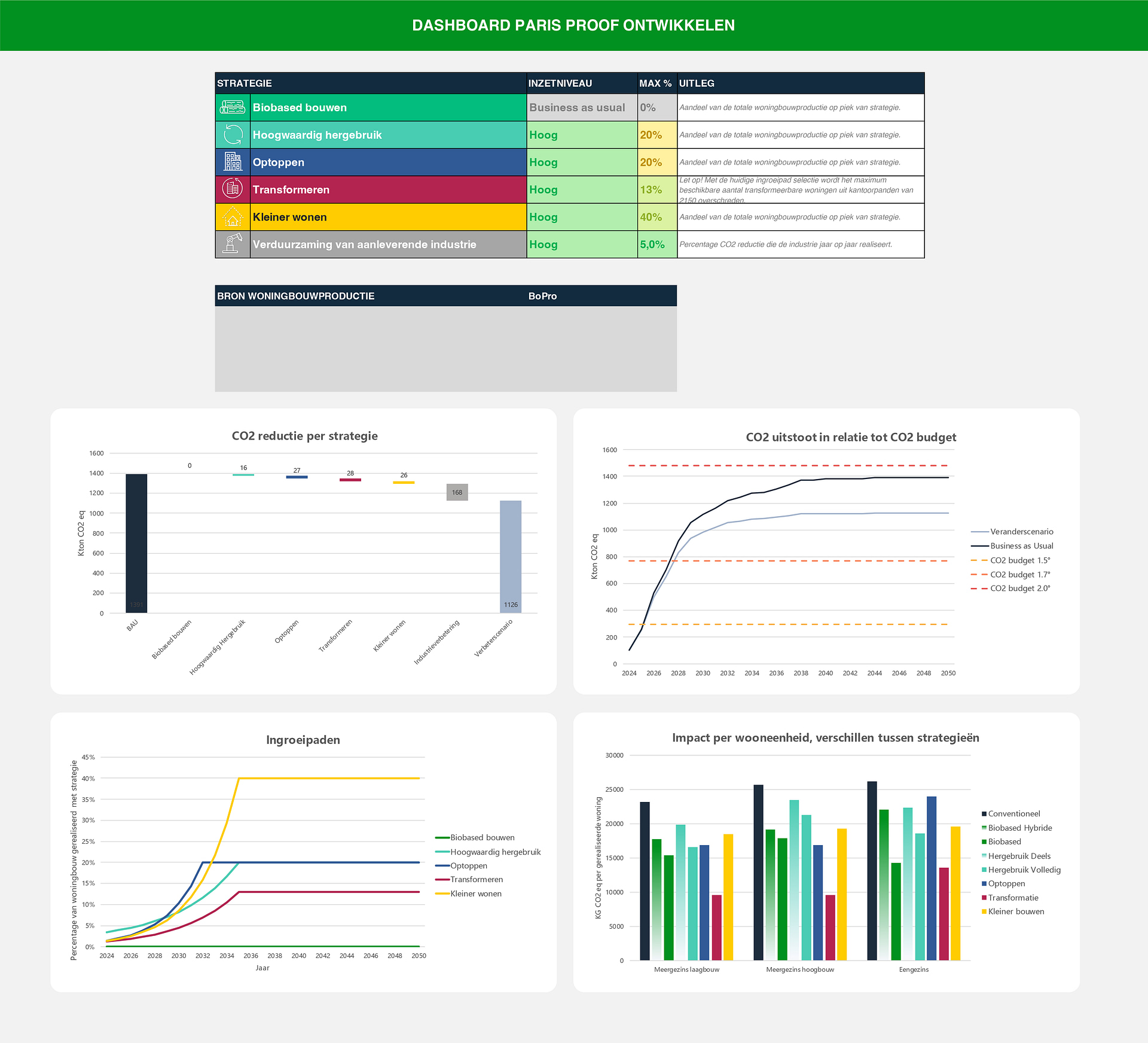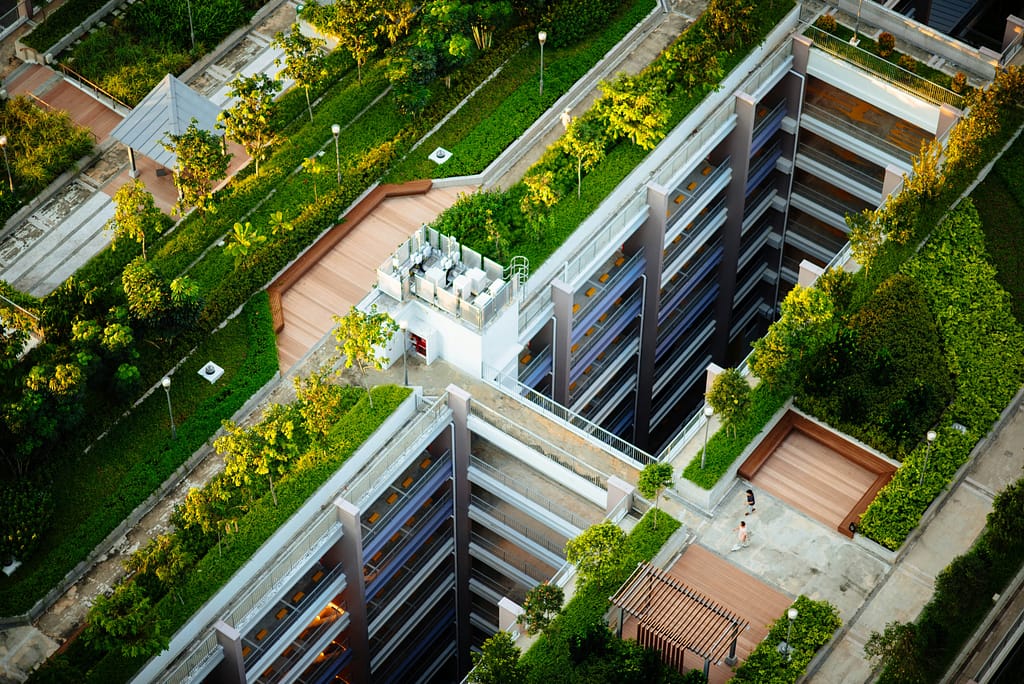Building a Net-Zero Future in Rotterdam: Paris Proof Tool for Construction
Partnering with Rotterdam to shape effective pathways for net-zero urban development using circular strategies and the Paris Proof Tool.
Metabolic has collaborated with the city of Rotterdam to develop the Paris Proof Tool, enabling policymakers and developers to chart pathways for sustainable urban growth. The tool incorporates circular strategies like biobased building and high-quality reuse to support Rotterdam’s goal of climate neutrality by 2050.
- Client: City of Rotterdam
- Date: April 2024

Aligning housing demands with climate goals
Rotterdam faces the dual challenge of meeting ambitious carbon reduction goals while delivering on its promise to build 55,000 new homes by 2030. The construction sector, responsible for 50% of national raw material consumption and 11% of the Netherlands’ CO₂ emissions, needs innovative pathways to achieve these net-zero carbon objectives.
Developing the Paris Proof Tool
We created the Paris Proof Tool, which enables the city to explore circular strategies for reducing emissions in the construction sector. The model is based on six key strategies identified as important drivers for CO₂ reduction. These strategies should be implemented in unison but cannot be introduced in every new construction project or area development. By incorporating key strategies such as biobased building, high-quality reuse, and vertical extension, the tool helps policymakers identify pathways to sustainable development while maintaining housing growth targets. Here’s how the strategies were implemented:
- Biobased Building: Introduced hybrid and fully biobased profiles to minimize the environmental impact of new constructions.
- High-Quality Reuse: Applied recycled materials from demolished buildings to new housing projects.
- Vertical Extension (Optoppen): Expanded existing buildings to accommodate additional housing with minimal footprint expansion.
- Transformation of Office Buildings: Focused on retrofitting office buildings into high-quality housing, reducing the demand for new construction and the associated carbon emissions.
- Building Smaller Dwellings: Designed smaller, space-efficient homes to meet urban housing demand while lowering resource consumption and emissions. By prioritizing compact yet functional layouts and community-driven living arrangements, this approach optimizes land use and minimizes the environmental footprint of each dwelling.
- Industry Decarbonization: Decarbonized the industry by adopting greener production methods, substituting conventional materials with low-carbon or recycled alternatives, and optimizing supply chains.
Charting pathways for net-zero urban growth
Metabolic delivered a calculation model (in Excel) to the municipality of Rotterdam, enabling policymakers to calculate the cumulative CO₂ reduction of various circular strategies for its housing construction goals. The municipality can adjust various parameters in the calculation model, allowing them to calculate different scenarios for the contribution to the required CO₂ reduction. The Paris Proof Tool enables the City of Rotterdam to:
- Quantify the cumulative CO₂ reductions of various strategies.
- Map realistic pathways for achieving climate neutrality by 2050.
- Support policymakers in developing actionable plans to implement circular economy principles in construction.
- Metabolic is a leading consultancy specializing in creating sustainable urban solutions that align economic prosperity with planetary health. With over a decade of experience, we help cities like Rotterdam build practical strategies for climate neutrality.











